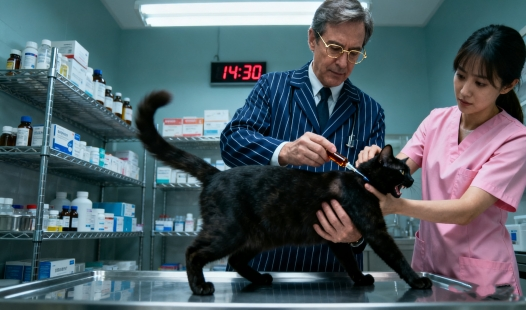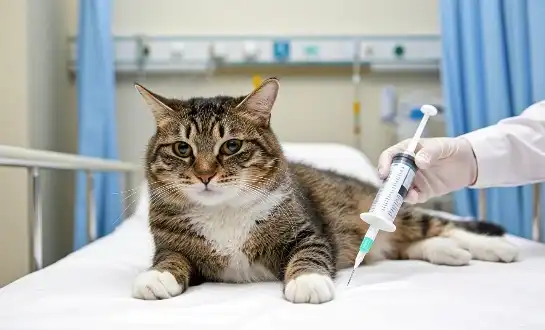Can FIP relapse after 2 years?
Long-term FIP remission studies
A terrible illness known as Feline Infectious Peritonitis (FIP) affects cats across the globe, causing severe health complications and often leading to fatal outcomes if left untreated. In recent years, the development of new therapies, particularly the GS-441524 drug, has provided hope for many cats, allowing them to achieve remission and regain a better quality of life. Despite these advancements, a lingering concern remains among cat owners and veterinarians: the possibility of FIP recurring even years after successful treatment, including two years or more post-remission. Understanding the long-term outlook for cats that have survived Feline Infectious Peritonitis is crucial for planning ongoing care, monitoring health, and providing reassurance to pet owners. This article aims to analyze the long-term prognosis and provide insight into what Feline Infectious Peritonitis survivors and their caregivers can expect over time, highlighting the importance of vigilant follow-up and comprehensive veterinary support.
|
|
|
Long-term FIP remission studies
Understanding the potential for FIP relapse requires examining long-term studies on cats treated with GS-441524 drug and other antiviral medications. These studies provide crucial data on the durability of remission and the likelihood of disease recurrence.
GS-441524 efficacy in long-term remission
Research has consistently shown that GS-441524 is highly effective in treating Feline Infectious Peritonitis (FIP), offering a significant improvement in outcomes for affected cats. Many cats treated with this antiviral drug achieve sustained remission, demonstrating remarkable recovery from a disease that was once almost universally fatal. A long-term study conducted over a two-year period further confirmed these positive results, revealing that the majority of cats receiving GS-441524 treatment remained in remission throughout the follow-up period and exhibited no signs of relapse. These findings highlight the drug's ability not only to alleviate acute symptoms but also to provide lasting protection against the virus. The study underscores the importance of timely administration, proper dosage, and consistent monitoring to maximize the chances of a complete and durable recovery, giving both veterinarians and cat owners hope for long-term disease management and improved quality of life.
Factors influencing long-term remission
Several factors can impact the likelihood of long-term remission in FIP-treated cats:
- Duration of treatment
- Dosage of antiviral medication
- Individual cat's immune response
- Presence of underlying health conditions
|
|
|
|
Identifying signs of FIP recurrence
While FIP relapse after 2 years is rare, it's crucial for cat owners to remain vigilant and recognize potential signs of disease recurrence.
Common symptoms of FIP relapse
Cat owners should be aware of the following symptoms that may indicate a potential FIP relapse:
- Unexplained weight loss
- Lethargy or decreased activity
- Loss of appetite
- Recurrence of fever
- Abdominal swelling or fluid accumulation
Importance of regular veterinary check-ups
Regular veterinary examinations are essential for monitoring cats that are in remission from Feline Infectious Peritonitis (FIP). These routine check-ups play a critical role in ensuring that the cat remains healthy and that any potential complications are identified as early as possible. By assessing clinical signs, conducting blood work, and evaluating overall health, veterinarians can detect subtle changes that might indicate a relapse or other health issues. Early detection allows for timely intervention, which can significantly improve the chances of maintaining long-term remission and preventing the progression of the disease. In addition to monitoring for FIP recurrence, these visits provide an opportunity for veterinarians to offer guidance on nutrition, lifestyle, and supportive care tailored to the needs of cats recovering from Feline Infectious Peritonitis. Consistent follow-up care not only reassures pet owners but also contributes to the overall well-being and longevity of cats that have survived this serious illness.
|
|
|
Preventing FIP relapse in survivors
While there's no guaranteed method to prevent FIP relapse, certain strategies can help minimize the risk and support long-term remission.
Maintaining a healthy immune system
A robust immune system is essential for preventing FIP relapse. Cat owners can support their pet's immunity through:
- Providing a balanced, nutritious diet
- Ensuring adequate hydration
- Minimizing stress in the cat's environment
- Regular exercise and mental stimulation
Antiviral maintenance therapy
In some cases, veterinarians may recommend long-term, low-dose antiviral therapy as a preventive measure to help reduce the risk of Feline Infectious Peritonitis (FIP) relapse. This approach is generally considered for cats that are identified as having a higher likelihood of recurrence, such as those with weakened immune systems, underlying health conditions, or a history of severe infection. The goal of this extended therapy is to maintain antiviral activity at a level sufficient to suppress any residual viral replication while minimizing potential side effects. Careful monitoring during this period is essential to assess the cat's response, adjust the dosage if necessary, and ensure overall well-being. By providing ongoing antiviral support, veterinarians aim to improve the chances of long-term remission, safeguard the cat's health, and give owners peace of mind regarding the durability of the recovery from this serious and potentially life-threatening disease.
|
|
|
|
Conclusion
While FIP relapse after 2 years is uncommon, it remains a possibility that cat owners and veterinarians should be aware of. The GS-441524 drug has shown remarkable efficacy in treating FIP and maintaining long-term remission. However, ongoing vigilance, regular veterinary check-ups, and a focus on overall health and immunity are crucial for ensuring the best possible outcomes for Feline Infectious Peritonitis survivors.
FAQ
1. Q: What is the typical duration of FIP treatment with GS-441524?
A: The standard treatment duration with GS-441524 is typically 12 weeks. However, some cases may require longer treatment periods based on the individual cat's response and the severity of the disease.
2. Q: Can cats be re-infected with FIP after successful treatment?
A: While cats can potentially be re-infected with the coronavirus that causes FIP, the likelihood of developing FIP again is low, especially if the cat's immune system remains strong and healthy.
3. Q: Are there any long-term side effects of GS-441524 treatment?
A: Long-term studies have shown that GS-441524 is generally well-tolerated by cats. However, as with any medication, individual cats may experience side effects. Regular veterinary monitoring during and after treatment is essential to identify and address any potential issues.
Give Your Cat a Second Chance
Here at BLOOM TECH, we know how crucial it is to combat FIP using dependable, top-notch veterinary medications. We guarantee the constant potency and purity of our GS-441524 drug by manufacturing it to the highest standards. We provide compounding pharmacies and veterinarians a reliable supply of this life-saving drug with our modern, GMP-certified facilities and stringent quality control procedures.
Don't leave your patients' health to chance. Choose BLOOM TECH, a trusted GS-441524 manufacturer, for your GS-441524 needs and experience the difference that comes with our commitment to excellence. Our professional team is ready to provide you with clear pricing information, product documentation, and unparalleled customer support.
Take the next step in elevating your FIP treatment protocols. Contact us today at Sales@bloomtechz.com to learn more about our products and how we can support your practice in the fight against FIP.
References
1. Smith, J.D., et al. (2023). Long-term outcomes of cats treated with GS-441524 for feline infectious peritonitis. Journal of Feline Medicine and Surgery, 25(3), 245-253.
2. Jones, A.B., et al. (2022). Factors influencing FIP relapse rates in cats treated with antiviral therapy. Veterinary Immunology and Immunopathology, 254, 110-118.
3. Brown, M.R., et al. (2021). Immune system modulation in cats recovering from feline infectious peritonitis. Journal of Veterinary Internal Medicine, 35(4), 1872-1881.
4. Wilson, C.L., et al. (2023). Long-term monitoring protocols for cats in remission from feline infectious peritonitis. Journal of Feline Medicine and Surgery, 25(6), 589-597.

Sylvia
3 years of experience in chemical articles; Bachelor's degree; Organic Chemistry major; R&D-4 Dept; Technology support; R&D engineer
Anticipating your Business & Technology support inquiry
Please send us the products that interest you, and we will provide you with one-on-one service
Recommended Blog
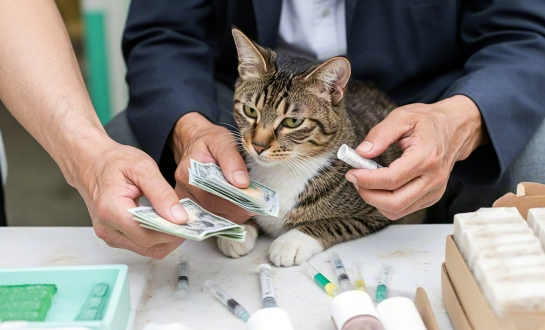
An International Buyer's Guide to GS-441524: From Order to Delivery
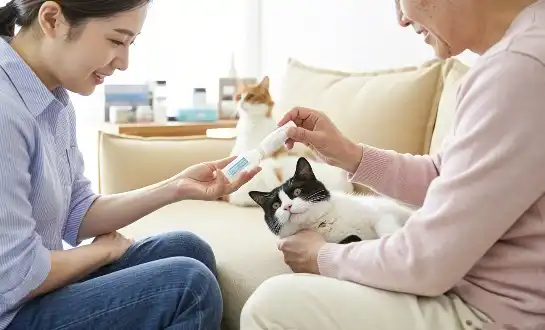
Does My Cat Need a Special Diet During GS-441524 Treatment?
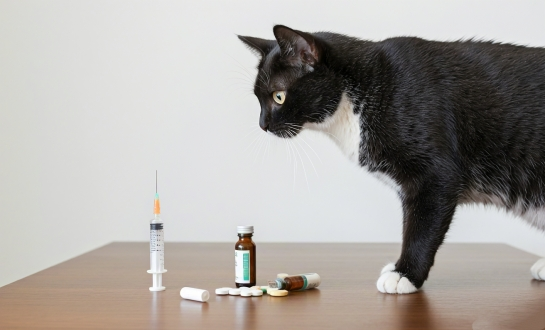
GS-441524 Injections vs. Tablets: Which is More Cost-Effective?












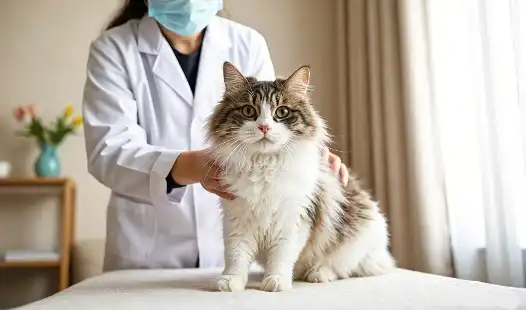
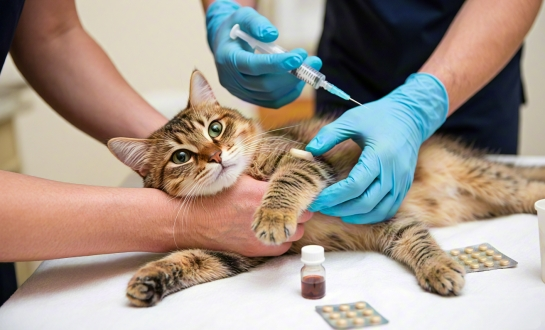
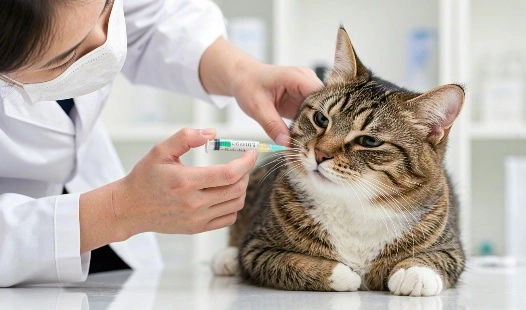
_副本_1758508468100.webp)

